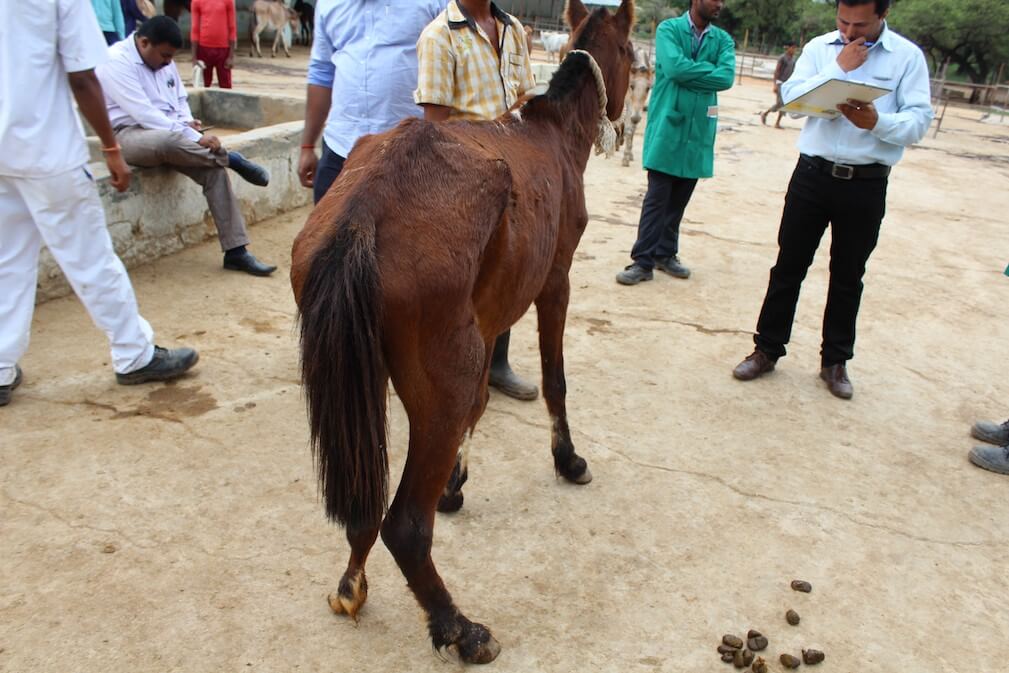UN INT Intro Text w/ Centered Large Responsive Image - *Important Note* You must UNLINK this shared library component before making page-specific customizations.
A series of inspections – authorised by the Animal Welfare Board of India (AWBI) and conducted by experts from prominent veterinary colleges and PETA India – have revealed widespread suffering and neglect of thousands of horses, donkeys, and mules who are used as living factories to produce antitoxins.
Inspectors documented numerous apparent violations of laws and guidelines. Most of the facilities were not even registered with India's Committee for the Purpose of Control and Supervision of Experiments on Animals (CPCSEA) to conduct these procedures on animals. Pregnant mares and foals were found at some facilities that were not officially registered as breeders.
India's Prevention of Cruelty to Animals Act, 1960, requires people who are responsible for animals to take all reasonable measures to ensure their well-being and to prevent unnecessary pain or suffering.
But inspectors found that the animals in these facilities suffered from health problems and were fearful and anxious. When approached by humans, many of them struggled to get away. Common physical problems included anaemia, bleeding and infected wounds, diseased hooves, malnourishment, parasites, swollen limbs, abnormal gaits, and eye abnormalities such as blindness. Basic husbandry procedures such as dental care and hoof trimming appeared to be ignored, and improper tools were used for grooming.
The facilities often used painfully large needles – larger than the size recommended by the CPCSEA guidelines – in order to collect blood more quickly.
The CPCSEA guidelines state that horses and other equines need sand baths, daily exercise, daily grooming, the opportunity to socialise, open fields for grazing, and clean bedding for respite from hard concrete floors. But the equines at these facilities were typically kept in crowded, barren paddocks and often tied with ropes that severely limited their movement. Many were forced to stand and lie in their own urine and faeces, and some suffered from "capped elbow", a painful inflammation and swelling of the joint caused by lying on hard floors.
This mule has osteoarthritis and shows signs of lameness.

You can help prevent horses, mules, and donkeys from being abused by urging the Indian Ministry of Environment, Forest and Climate Change and the CPCSEA to deny or cancel the facilities' animal-experimentation registration renewals and immediately revoke their licences to manufacture biological products.
Please also urge the Indian Ministry of Science & Technology and the Indian Ministry of Health & Family Welfare to encourage companies to use non-animal methods of antitoxin and antivenin production.